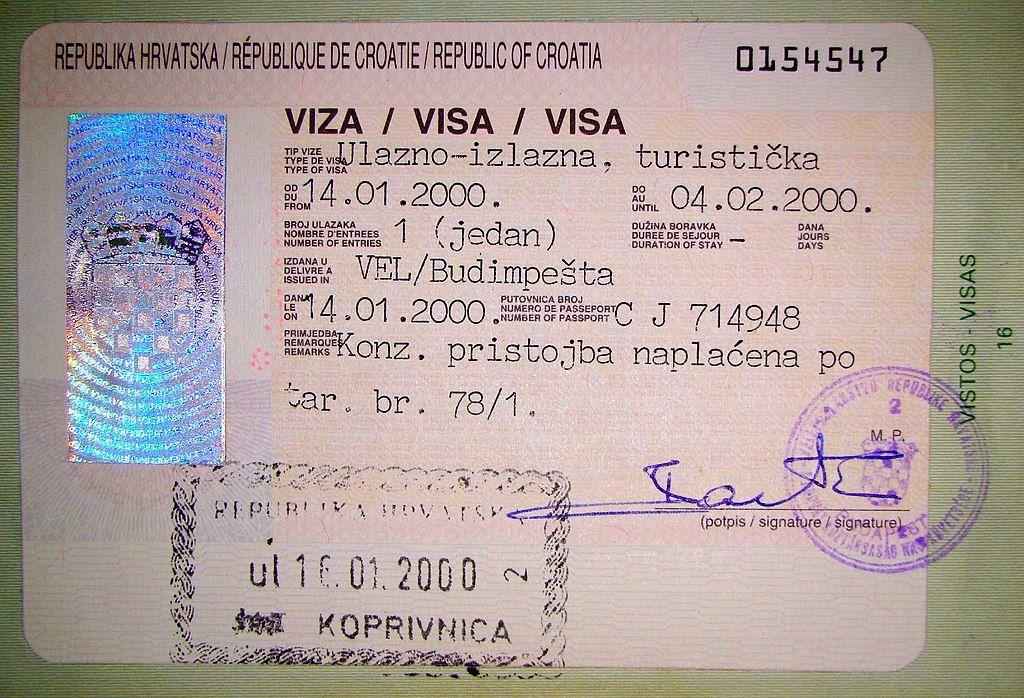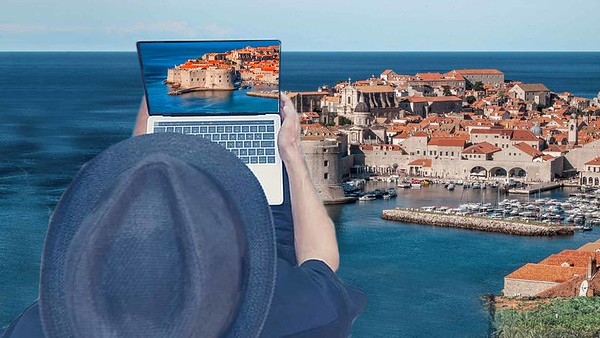While we Europeans have known and appreciated Croatia for a long time, Americans have been discovering it more and more over the recent years. Ever since Croatia introduced its famous digital nomad visa, larger numbers of United States citizens have been arriving on these rugged shores. Whether tourists or those looking to work remotely while spending an extended amount of time in a part of Europe that is still somewhat lesser known, it’s important to be acquainted with the legalities of setting oneself up for a longer period here.
I’ve written many articles on residence formalities and administrative issues that require tackling for each and every category of foreigner in Croatia over the years.
I’ll be frank: Croatia is infamous for its red tape.
It has an almost masochistic desire to make every admin task more difficult than it needs to be, and the bureaucracy here is rather astounding. Turning one sheet of paper into 10 has the ability to throw a wet blanket over the sunshine, the sea, the jaw-dropping landscapes, and the more favourable cost of living, if you let it. Still, if you want to spend longer than your allotted 90 days in any 180 of visa-free stay in Croatia and set yourself up as a digital nomad, you’ll have to jump through a hoop or two. Most Americans I know here have told me in no uncertain terms that it has been worth it, so bear with me.
Croatia’s praised digital nomad visa
Croatia’s residence procedures are typically laborious for U.S. citizens hoping to spend extended amounts of time here unless they are part of the Croatian diaspora and have Croatian citizenship, or are married to a Croatian or another EU national. Many Americans ended up leaving Croatia after trying every single avenue to get their residence extended or renewed.
Back in January 2021, the digital nomad visa (which is actually a type of residence permit, as visas and residence permits aren’t the same thing in Croatia) saw the light of day, forcing Croatia into the limelight even more. It has been an immeasurable success thus far, with a great many third-country nationals (non-E.U. citizens), including Americans flocking to this mountainous country of less than four million people, to spend a year (or in some cases longer) living here while working remotely. Few could ever argue that a foreign wage and a Croatian lifestyle is the dream.
First things first: I’ll quickly explain what I mean about permits and visas in the Croatian sense. In this country, residence is regulated by permits, visas refer to documents allowing one to enter the country. So, the digital nomad visa is actually the digital nomad permit. It doesn’t sound quite as good, though, does it?
So we’ll keep calling it a visa.

There are some important points to note about the digital nomad visa, and one of the most important (if not the most important) is that you cannot work for a company headquartered (registered) in Croatia. It has to be a foreign one, you need to be working remotely for it and it can’t be a company which employs or provides services to Croatian employers. It can also be your own company, of course, but you can’t come and set it up in Croatia.
• You can be granted residence as a digital nomad for no more than one year and that period cannot be extended without you needing to leave Croatia.
• A new digital nomad visa can be applied for no sooner than six months since your last one has expired.
• Time spent living in Croatia after being granted a digital nomad visa also doesn’t count in any way to being given permanent residence here.
• That said, for the time you are legally allowed to be living here (assuming you’re granted residence), some of your family members, such as your spouse and children, can join you through a process called family reunification. This includes common law marriages (couples who can prove they have been together for more than three years). The three year rule is shortened if you have kids together.
Right, now that’s out of the way, let’s get on to what you need to do in order to be given the green light to live in Croatia and work remotely for a foreign company. One good thing is that you can make the application online. This might seem like nothing of note to many, but believe me, in Croatia, it is.
After you submit your application, you’ll receive an automatic confirmation of your request and then be assigned a caseworker who will remain in contact with you and will tell you what documents you must provide. There is quite an extensive list, ranging from the basics like a copy of your valid passport to pay slips from the last six months (the required minimum monthly income is just over 2,500 euros as it currently stands), but there’s nothing in it that which will be particularly difficult to provide.
Upon entering Croatia

Once you are approved, you’ll need to move onto the next steps, the first of which is registering your residence.
This needs to be done within three days following your entry into the country and you need to go to the administrative police station (MUP) responsible for your area of residence.
So, let’s say you’re going to live in Dubrovnik, you’ll need the Dubrovnik administrative police station, the same is the case if you’re going to take up residence in Zagreb, Zadar, Split … you get the picture. There are many such administrative police stations all over Croatia, even in the most obscure of places, so you won’t be stuck in your quest.
Once there, you’ll be instructed on what you need to do. It will involve proving your identity with your passport, filling in another form, proving you’ve leased an apartment or house and most likely identifying your landlord.
After all that, you must request a biometric residence permit which acts as your ID (something everyone physically present in Croatia must be able to present if asked) and also acts as evidence of your legal status in Croatia as a digital nomad. As the icing on this beautifully administrative cake, you’ll need to pay the accompanying fees.
That’s the easiest bit, of course.
As Croatia opens its doors to more U.S. citizens who are discovering this absolutely marvellous country, things are gradually changing from within. I’m not sure anyone would ever turn down the chance of living for a year (or more) in one of the most beautiful countries on the planet, all while earning a wage that will allow you to see, do, drink, eat and thoroughly absorb it all.

Lauren Simmonds
Lauren Simmonds is the editor of Total Croatia News, the largest English language portal in Croatia. She lives in Zagreb, Croatia, and is a translator, content writer, interpreter and the co-author of "Croatia - A Survival Kit for Foreigners," which was published in 2022.














